Soya Chunks vs Soya Beans:- An In-depth Comparison for Your Health When it comes to plant-based protein sources, soya has gained immense popularity for its nutritional value. But have you ever wondered about the difference between soya chunks and soya beans? In this blog post, we will take a closer look at these two forms of soya and explore their benefits uses and overall impact on your health. Soya is often debated in today’s food discussions. Is it packed with beneficial omega 3 or overflowing with damaging estrogen? Lately, critiques about certain soy products have popped up, renewing a fondness for soya chunks. For vegetarians, soya chunks are akin to chicken breasts for non-vegetarians – a brilliant protein source! Beyond that, soya chunks offer other nutrients. An added bonus? It’s super simple to include in your meals. Want to learn more? Keep on reading!
What are Soya Chunks?
Soya chunks, also known as textured vegetable protein, are made from defatted soy flour. This unique process involves removing the oil from soybeans and then processing the remaining protein-rich soy flour into small, bite-sized chunks. Soya chunks have a meat-like texture, making them an excellent substitute for meat in various dishes.
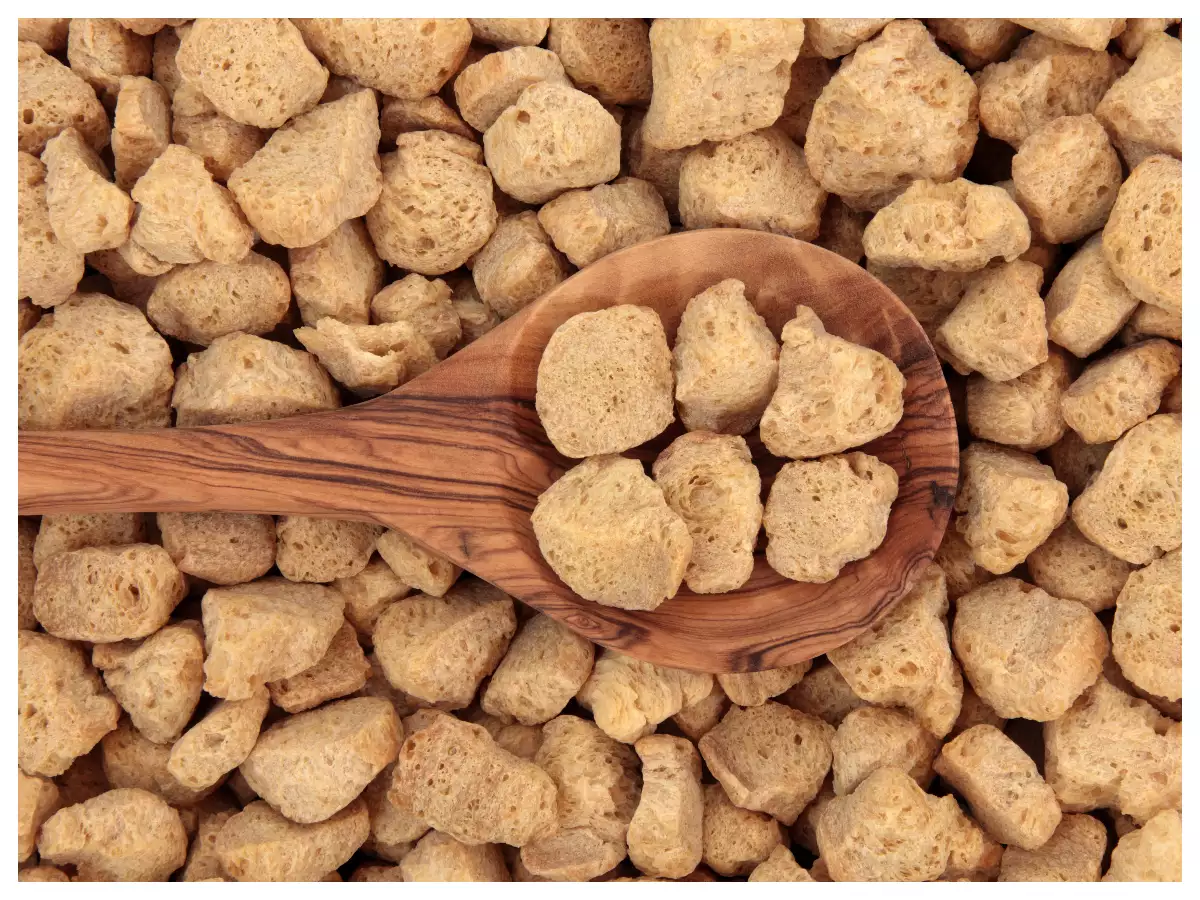
Are Soya Chunks Healthy?
If you’re a vegetarian, vegan, or just someone looking for a protein-packed food option, chances are you’ve heard of soya chunks. But here’s the big question—are soya chunks really healthy, or are they just overhyped? Let’s break it down in simple terms.
Nutritional Profile of Soya Chunks
Macronutrients (per 100g uncooked)
- Protein: ~52g
- Carbohydrates: ~33g
- Fat: ~0.5g
- Calories: ~345 kcal
Micronutrients
- Iron
- Calcium
- Magnesium
- Folate
- Dietary Fiber
👉 Clearly, soya chunks are a powerhouse of nutrition with minimal fat and maximum protein.
1. High Protein Content: Soya chunks are a powerhouse of protein, making them a popular choice among vegetarians and vegans. They contain about 52 grams of protein per 100 grams, making them one of the richest plant-based protein sources available.
2. Rich in Essential Amino Acids: Soya chunks are a complete protein source as they contain all the essential amino acids that our bodies need for optimal health.
3. Low in Fat: Soya chunks are an excellent option for those looking to reduce their fat intake. They contain minimal amounts of unhealthy fats, making them a healthy choice for weight management.
4. Rich in Fiber: Soya chunks are also a great source of dietary fiber, which aids in digestion, promotes satiety, and helps maintain a healthy gut.
5. Weight Management: Eating soya chunks helps with weight loss. Why? They’re full of protein and fiber. These nutrients boost feelings of fullness, so you’re less likely to overeat. Plus, fewer cravings make it simpler to follow a diet that controls calories.
6. Bone Health: Soya chunks are rich in calcium and vitamin D. They’re good for our bones. Eating soya chunks could help keep your bones strong. They can even aid in preventing bone issues like osteoporosis and bone loss due to aging. Particularly, people who might not get enough calcium could see benefits.
7. Heart Health: Soya chunks have good stuff for the heart like omega-3 fats and phytosterols. These can drop your cholesterol and make heart problems less likely. Eating soya chunks often, when your food is balanced, can really boost your heart and lessen heart issues.
Uses of Soya Chunks:
Soya chunks can be used in a wide range of Soya Recipes, from curries to stir-fries and even as a meat substitute in burgers and tacos. They absorb flavors well, making them versatile for a variety of cuisines.
Are Soya Chunks Good for Everyone?
Benefits for Men
Promotes muscle growth without adding extra fat.
Benefits for Women
May help in balancing hormones during menopause due to natural plant estrogens (phytoestrogens).
Benefits for Kids
A protein-rich option for growing children, especially in vegetarian households.
For Athletes & Gym Enthusiasts
Perfect post-workout meal addition for lean muscle building.
Are Soya Chunks Good for Weight Loss?
Low Fat, High Protein Benefits
Perfect for calorie control without sacrificing nutrition.
Keeps You Full Longer
Their protein and fiber combo helps in appetite control.
Do boiling soya chunks reduce protein?
No—the proteins in soya chunks aren’t diminished by boiling.
They take in water and expand, so while 100 grams of the cooked soya chunks contains less protein than the same weight of uncooked chunks, their absolute protein content remains unchanged. Boiling also reduces anti-nutrients, making soya proteins easier to digest.
So, boiling soya chunks makes them safe and softer, easier to chew, and digestible without any protein loss.
What are Soya Beans?
Soya beans, on the other hand, are the whole beans harvested from the soy plant. They are small, oval-shaped legumes that come in various colors, including yellow, green, and black.
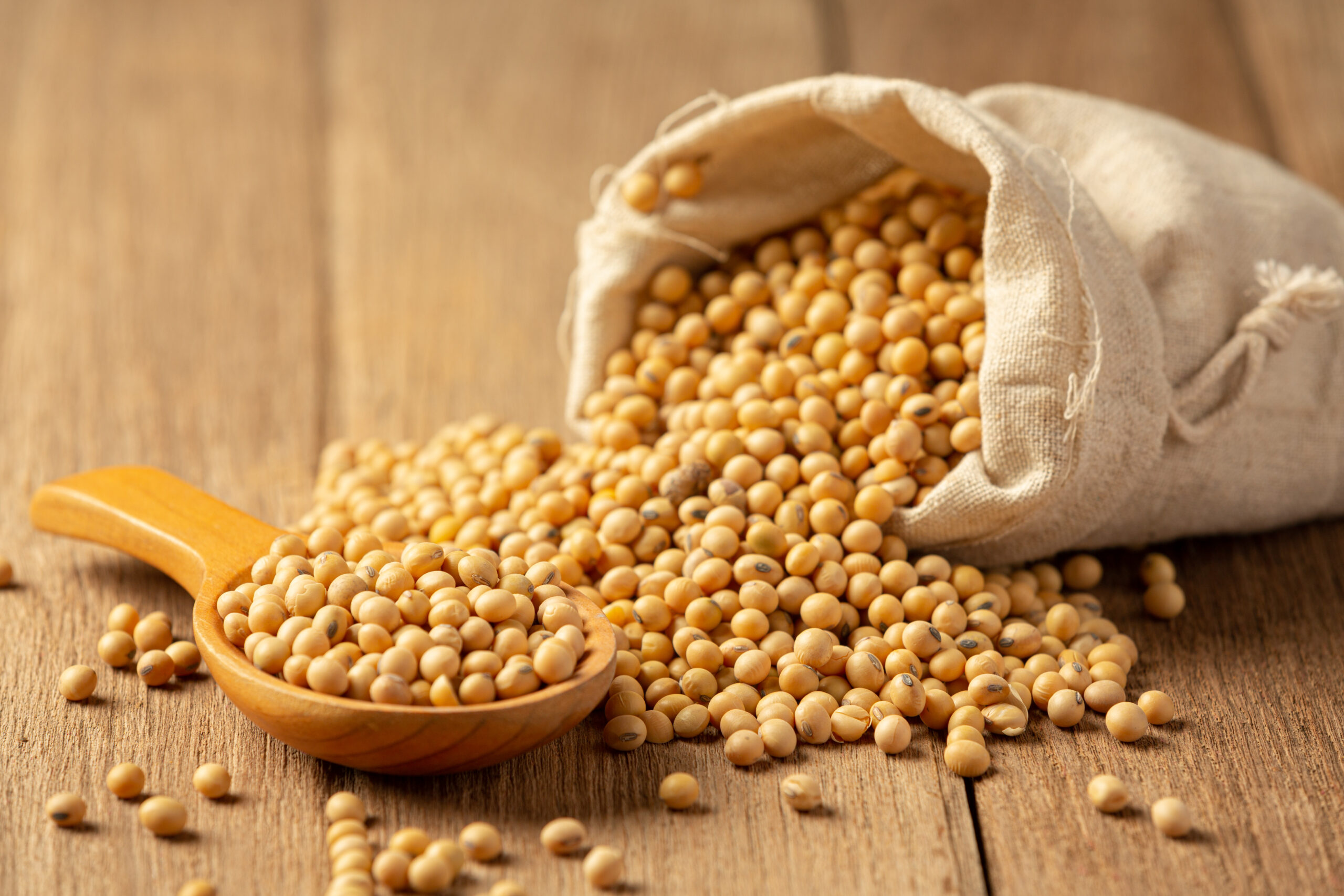
Benefits of Soya Beans:
1. Nutrient-Dense: Soya beans are rich in essential nutrients, including protein, fiber, vitamins, and minerals. They are also a good source of folate, iron, and calcium.
2. Heart-Healthy: Soya beans contain high levels of polyunsaturated fats, including omega-3 fatty acids. These healthy fats help reduce cholesterol levels, lower blood pressure, and reduce the risk of cardiovascular diseases.
3. Antioxidant Powerhouse: Soya beans are packed with antioxidants, such as iso flavones and phenolic compounds, which help protect the body against free radicals and oxidative stress.
4. Vitamins and Minerals: Soya beans boast essential nutrients like iron, calcium, magnesium, and vitamin K. These are key for several body functions. They uphold bone strength, enable immune function, encourage a sense of wellness.
5. Weight Management: Soya beans offer less calories but lots of protein and fiber. They’re really beneficial for controlling weight. Consuming soya beans can make us feel more satisfied and curb hunger, because of the protein and fiber they contain. This aids in not just losing weight, but also keeping that weight off.
Uses of Soya Beans:
Soya beans are incredibly versatile and can be used in various forms. They can be boiled, roasted, fermented, or processed into soya milk, tofu, tempeh, miso, and more. Soya beans are a staple in many cuisines worldwide and can be found in dishes ranging from soups and stews to salads and desserts.
Which is Better: Soya Chunks or Soya Beans?
Both soya chunks and soya beans offer numerous health benefits and can be incorporated into a balanced diet. Soya chunks are an excellent choice for those looking for a high-protein, low-fat meat substitute, while soya beans provide a wider range of nutrients and can be used in various forms.
In conclusion, whether you choose soya chunks or soya beans depends on your dietary preferences, cooking style, and health goals. Incorporating either of these options into your diet can provide a significant boost to your overall health and well-being. So why not give them a try and discover the wonders of soya for yourself?
Soya beans, packed full of healthy substances like protein, fiber, vitamins, and minerals, are a solid option for people who don’t eat animal products. They offer excellent digestive support with their high fiber content and house key nutrients like iron, calcium, magnesium, and vitamin K, promoting overall health. Now, let’s talk about soya chunks. They’re created from soya bean flour with the fat removed, then shaped into small pieces. The result? You’re looking at a food with potentially more protein than whole soya beans due to its condensed nature. They even mimic the texture of meat, making them an outstanding substitute in countless dishes.




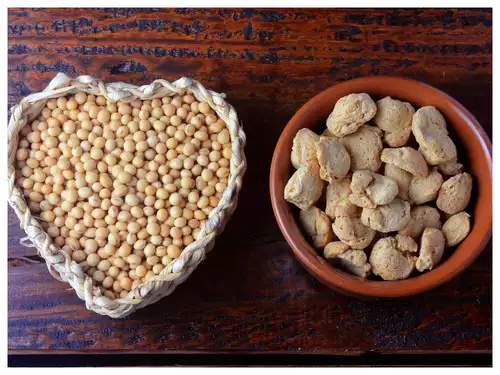




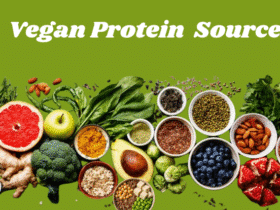
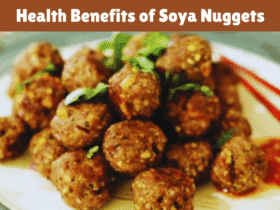
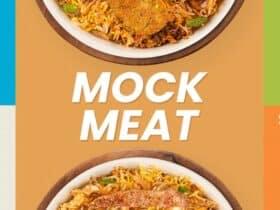
Leave a Reply